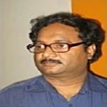Language, Culture and Diversity

University of the Aegean
SECTION COLLECTION INFORMATION
Dear Colleagues,
In recent years, the issue of language and literacy has been a growing concern for the international community, linked to the subsequent school success or failure of the child and therefore contributing in the long run to social well-being, social justice and the development of democracy. Today, more than ever before, the concept of acquisition of language is intertwined and identified with the participation of the individual in social processes. According to the United Nations Educational, Scientific and Cultural Organization (UNESCO), literacy is defined as "Τhe ability to identify, understand, interpret, create, communicate and compute using printed and written materials associated with varying contexts. Literacy involves a continuum of learning in enabling individuals to achieve their goals, to develop their knowledge and potential, and to participate fully in their community and wider society" (UNESCO, 2004). This definition draws attention to the significance of supporting language and literacy learning for individual and social prosperity, both across the lifespan and in context-sensitive ways.
In this context, language, culture and diversity are directly intertwined and connected concepts. Language teaching and learning is directly linked to the coexistence of many teaching practices and methods, that derive from a variety of different, contemporary and traditional theories, which are directly linked to the culture, context and environment in which they are cultivated. The coexistence of theoretical approaches, techniques and teaching methods creates a wide variety of types of language cultivation and acquisition.
The main objective of this section is to play a leading role in establishing “Language, Culture and Diversity” as an important discipline within "Pedagogy of Language and Literacy". However, considering its interdisciplinary structure and potential impact of language to scientific development in almost all fields, the goal of the section is to publish research articles/reviews supporting the theoretical and practical advancement of “Language and Literacy” based on cultural identities and elements, linguistic varieties and educational practices/varieties. This scientific field lends itself to the coupling of theory with educational practice, constituting a space that can highlight important (positive but also problematic) aspects of education. “Language, Culture and Diversity” provides an opportunity for the interaction among the educational and scientific community, including teachers, scientists, linguists, researchers, and other scientists interested in language theories and practices, such as literacy, early childhood education literacy, pedagogy of literacy, language education, critical, digital and visual literacy, literature theories, cultural diversities and language education, etc.
It is important to collect the experiences of "Language, Culture and Diversity". Seminal research articles and reviews in this area of study are welcome.
We look forward to receiving your contributions.
Dr. Zoi T. Apostolou
Section Editor





